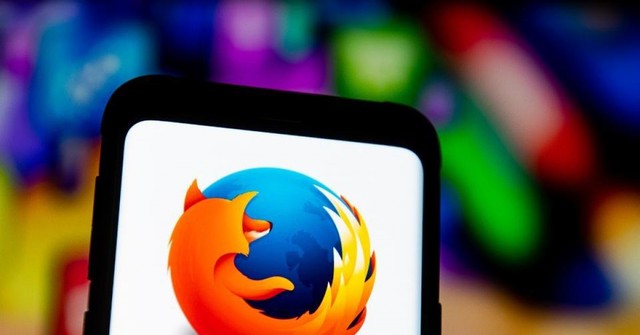Firefox – a worthy rival to Chrome for a while – is now struggling to find a way to survive
- Tram Ho
By the end of 2008, Firefox was flying high. Twenty percent of the 1.5 billion online users are using Mozilla’s browser to navigate the web. In Indonesia, Macedonia and Slovenia, more than half of people online are using Firefox. “Our market share in these regions is growing like crazy,” Ken Kovash, the president of Mozilla at the time, wrote in a blog post.
Almost 15 years later, things are not so bright anymore.
Across all devices, the browser accounts for less than 4% of the market. Particularly on mobile devices, this number only accounts for 0.5%. “Looking back over the past five years and looking at our market share and the numbers we publish, there’s no denying the drop,” said Selena Deckelmann, Senior Vice President of Firefox.
Mozilla’s own statistics show a decline of about 30 million monthly active users from the beginning of 2019 to the beginning of 2022. Deckelmann adds: “Over the last few years, what we have seen has been really a decline. substantial loss.”

The fate of Firefox has great implications for the web as a whole. For many years, it was the best candidate to keep Google Chrome from being too “heavy”, while providing a privacy-filled alternative. Since its release in 2008, Chrome has become a concept synonymous with the web: it is used by about 65% of online users and has a huge influence on how people experience the Internet. When Google launched the AMP publishing standard, websites started implementing it. Similar plans to replace third-party cookies in Chrome — a move that will impact millions of marketers and publishers — have already taken shape in Google’s product image.
“Chrome has won the desktop browser war. Hopes for Firefox’s revival are not high,” said a former Firefox employee, who worked on browser development at Mozilla but did not wish to be named. get any browser shares at this point.”
“They’ll have to accept the fact that Firefox won’t be able to come back from the ashes,” said another former Mozilla employee, who also requested anonymity for fear of affecting his career.

Mozilla and Google have a complicated relationship. While they may be competitors, the two are also business partners. Every year, Google pays Mozilla hundreds of millions of dollars in royalties – reports say that number is now in the range of $400 million per year – to have Google’s search engine set as the default in Firefox. (Google also pays Apple huge sums each year to make sure it’s the default search engine in Safari.) In its 2020 financial results, the most recent results available, Mozilla lists its total revenue as $496 million, with royalties from search transactions at $441 million. Of course, Firefox has other default search engine partners, such as Yandex Search in Russia, and these royalties are also important.
The Google-Mozilla agreement was last renewed in 2020 and is expected to expire in 2023. Statistics show that Firefox’s market share has dropped by about 1% over the duration of the agreement. The company’s own figures show that its monthly active users have remained steady at around 215 million. But there’s no guarantee Google will renew at the same cost.
Ms. Deckelmann said Mozilla did not disclose details of its agreements with its partners and declined to say whether negotiations with Google were ongoing. Mozilla’s financial statements from 2020 say that despite the layoffs, the company is doing well, and they expect financial results for 2021 to show revenue growth.
However, Mozilla and Firefox acknowledge that for their long-term future, they need to diversify the ways they make money. These efforts have been ramping up since 2019. The company owns a save-first-read-later service Pocket, which includes a premium subscription service. It also launched two VPN-style products that people can sign up for. And the company is also pushing harder into advertising, placing ads on new tabs that open in the Firefox browser.
Mozilla’s combined advertising and subscription revenue grew from $14 million in 2019 to $24 million in 2020, and the company said it expects financial results for 2021 to show new products. contributes 14% of its revenue. Independence from Google is key to creating a “healthier” business model.
But, some of these new bets have been unsuccessful and now appear to be at odds with Firefox’s inherent security goals. An encrypted file-sharing service has stopped working after it was used to spread malware. The company inserted ads into Firefox’s URL bar. And there is nothing more to say about the Firefox OS mobile browser.

The pressure to find new revenue streams is coming at a time when Firefox faces more competition than ever before. Many browsers are building their brands using privacy, as more and more Chrome competitors want to differentiate themselves by not collecting data about users’ browsing history or tracking. track what they do online. Firefox, DuckDuckGo, Brave, Vivaldi, and Safari all join Tor in blocking tracking to varying degrees.
“The main thing with Firefox is how extensible it is,” said Jonah Aragon, a system administrator who also helps run the proposed site’s Security Guidelines . a lot of security features aren’t enabled by default, which is unfortunate, but at least it gives you the option to enable those if you think you need them.”
In addition to the main Firefox browser for Android and iOS, Mozilla also operates the Focus browser, a browser that enhances privacy by default. Aragon adds that while Firefox competes with other privacy-focused browsers, it’s not necessarily the first to introduce new features. For example, Safari has pioneered the blocking of third-party tracking cookies by default.
“Once lost, it is difficult for users to return until there is a compelling reason and what is that compelling reason?” , said Bart Willemsen, a privacy-focused analyst at Gartner. Willemsen said he has been a Firefox user since day one. “I think Firefox really has a challenge to find a unique place – not just in their marketing statements, but in their absolute product – and go in one direction,” he said.
As for Vice President Deckelmann, making Firefox more personalized is key. This includes trying to enhance the browser’s functionality to accommodate more people online, she says.
“Now it’s almost impossible for people to manage all this information. For example, last year Firefox improved its homepage to allow people to receive previously dropped searches and unfinished articles. It redesigned the Android app and added the features from the password manager to the Firefox app,” said Deckelmann. “Mozilla is also focusing on partnerships, including recently partnering with Facebook’s parent company Meta to promote more privacy-focused advertising (?!?!).”
Deckelmann said Firefox will likely continue to find ways to further personalize people’s online browsing. However, the vice president added that Firefox doesn’t have to be as big as Chrome or Apple’s Safari to be successful. “All we really want is to be a viable option,” Ms. Deckelmann said. “Because we think this makes for a better Internet where people have different choices.”
Despite some bugs, Firefox is still important. Mozilla is pushing companies to be more private, and its key product is differentiation at its core. The browser market is currently dominated by Google’s Chromium open source codebase and its underlying browser engine, Blink, which turns code into visual web pages. Microsoft’s Edge browsers, Brave, Vivaldi, and Opera all use adaptive versions of Chromium. Apple forces developers to use its WebKit browser engine on iOS. Thus, Firefox’s Gecko browser engine is the only viable alternative.
“This market needs diversity. If Firefox’s market share dwindles, there will be less competition for Chrome,” Willemsen said. “We need that distinction for open Internet standards, for the sake of preventing monopolies. Others agree. Everyone we spoke with for this story — inside and outside of Mozilla — said that Firefox’s massive growth will make the web a better place. get that.”
Refer to Arstechnica
Source : Genk
